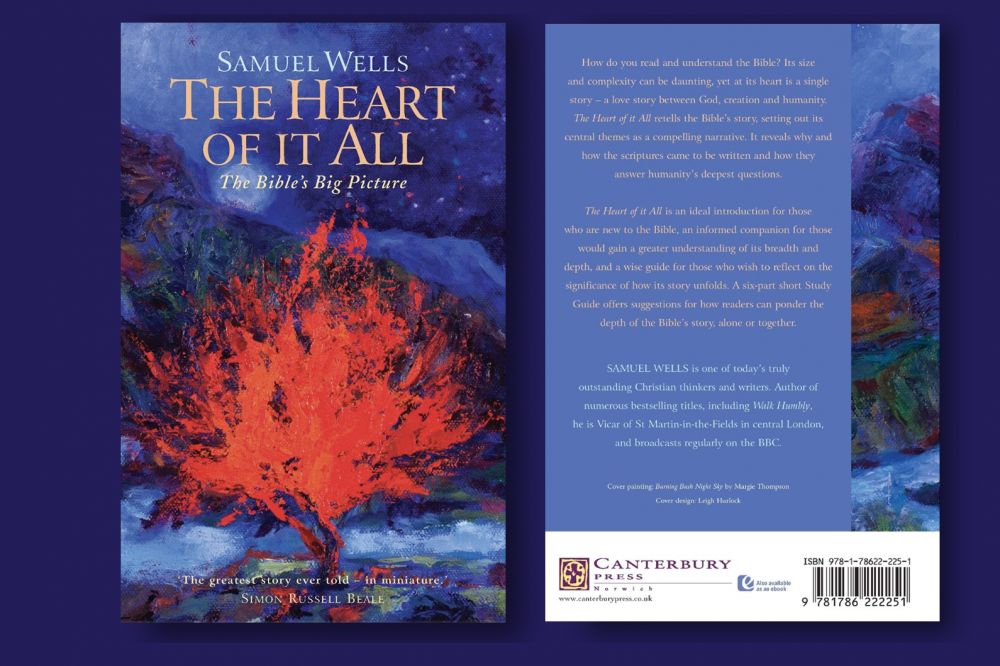
'The Heart of it All' by Samuel Wells
I wonder if you have ever thought that you want to know the story of the Bible better, so have sat down to read it from beginning to end. Most attempts to do that break down at some point, probably somewhere in the middle of Leviticus which is only the third book in! It soon becomes apparent that the Bible is a complicated library of 66 books of vastly different genres and styles. Yet somehow there feels to be a connecting story, like a river meandering through them all, sometimes visible, sometimes underground and hidden. In this short book (it is only 100 pages) Samuel Wells has given us an accessible but never trite introduction to that story.

It is never trite because it retells many of the stories from the Bible itself, letting them illuminate a theme or develop a narrative. They are arranged not in terms of the historical chronology of their content but in terms of the lived experiences that provoked their writing – so the Old Testament begins with Israel in exile, and the New Testament with the resurrection of Jesus Christ. This not only makes the theology alive and experiential but ensures that understanding is not divorced from application and the reader is continually made to think through the implications of the story. For though the Bible is founded and centred in the story of Israel it finishes in the story of all humanity and each of us is invited into the narrative. This is aided by the useful six study sections at the end which link chapters and bible passages and a half a dozen or so “wonderings” that encourage reflection and application.
The book is subtitled “The Bible’s Big Picture” and it is true to that description. It cannot cover all the detail, or go deeply into the hard or controversial passages of theology or ethics. It is an introduction, an extended trailer that makes you want to see and understand the whole film. So inevitably, to change the metaphor, there is something of the “greatest hits” dimension to the passages chosen. But these passages illuminate the whole and motivate engagement with “the greatest story ever told” as Simon Russell Beale describes it on the cover. So although this book will be particularly useful for those new to the Bible, the freshness of Samuel Wells’ approach to the story can help renew appreciation of the Bible for those who know it well…or feel they should know it better. Sometimes the greatest story ever told is the greatest story little understood. Samuel Wells can help remedy that.
